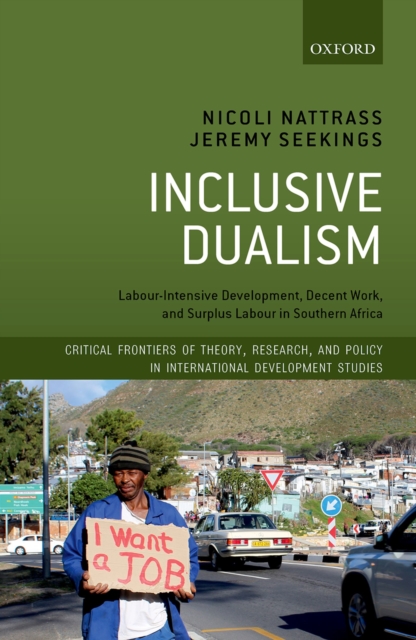
Inclusive Dualism : Labour-intensive Development, Decent Work, and Surplus Labour in Southern Africa EPUB
by Nicoli Nattrass, Jeremy Seekings
Part of the Critical Frontiers of Theory, Research, and Policy in International Development Studies series
EPUB
- Information
Description
W. Arthur Lewis, the founding father of development economics, proposed a dualist model of economic development in which 'surplus' (predominantly under-employed) labour shifted from lower to higher productivity work.
In practice, historically, this meant that labour was initially drawn out of subsistence agriculture into low-wage, labour-intensive manufacturing, including in clothing production, before shifting into higher-wage work.
This development strategy hasbecome unfashionable. The International Labour Organisation (ILO) worries that low-wage, labour-intensive industry promises little more than an impoverishing 'race to the bottom'.
Inclusive Dualism: Labour-intensive Development, Decent Work, and Surplus Labour in Southern Africa argues that decent workfundamentalism, that is the promotion of higher wages and labour productivity at the cost of lower-wage job destruction, is a utopian vision with potentially dystopic consequences for countries with high open unemployment, many of which are in Southern Africa. Using the South African clothing industry as a case study Inclusive Dualism argues that decent work fundamentalism ignores the inherently differentiated character of industry resulting in the unnecessary destruction of labour-intensive jobs and the bifurcation of society into highly-paid, high-productivity insiders and low-paid or unemployed outsiders.
It demonstrates the broader relevance of the South Africa case, examining the growth in surplus labour across Africa.
It shows thatlow- and high-productivity firms can co-exist, and challenges the notion that a race to the bottom is inevitable.
Inclusive Dualism instead favours multi-pronged development strategies that prioritise labour-intensive job creation as well as facilitating productivity growth elsewhere without destroyingjobs.
Information
-
Download Now
- Format:EPUB
- Pages:264 pages
- Publisher:OUP Oxford
- Publication Date:29/05/2019
- Category:
- ISBN:9780192578488
Other Formats
- PDF from £57.00
Information
-
Download Now
- Format:EPUB
- Pages:264 pages
- Publisher:OUP Oxford
- Publication Date:29/05/2019
- Category:
- ISBN:9780192578488